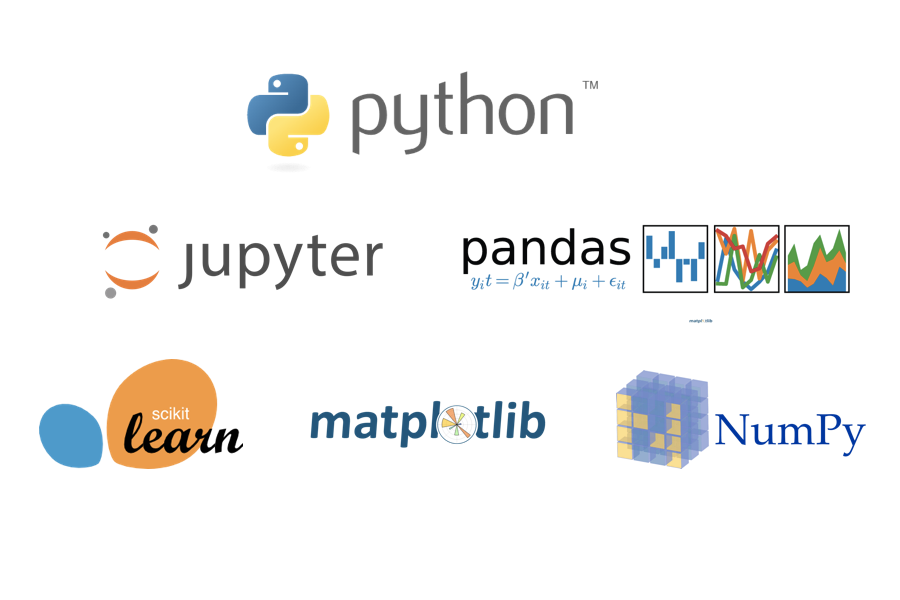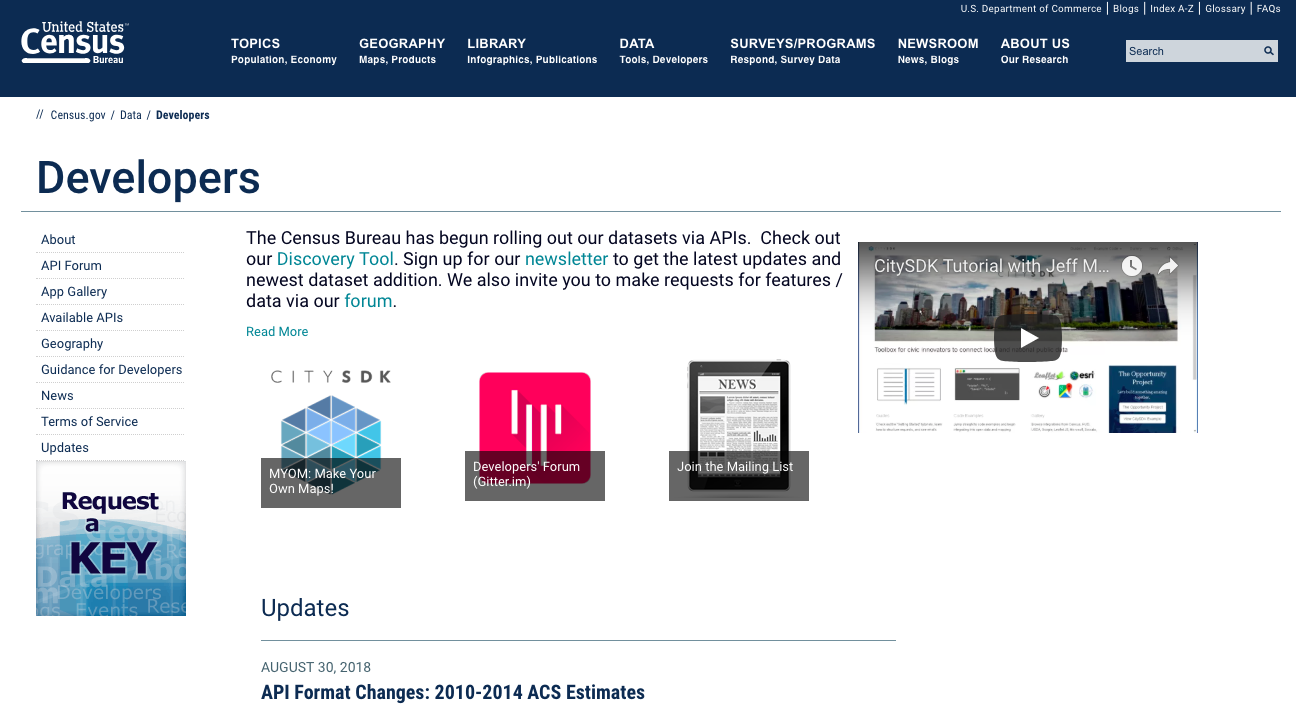City College, Fall 2019
Intro to Data Science
Week 2: How to Get Data
September 9, 2019Today's Agenda
- Housekeeping and notes.
- Structured vs unstructured data.
- Common sources of data.
- Common ways to access data.
- Discussing data.
- DataDive: U.S. Census.
FIRST
please go to this link and get a census api keyapi.census.gov/data/key_signup.html
Data Science Resources
Josh Laurito's Data Science Newsletter:signup / archive

Where does data come from?
- Government Agencies
- Private Firms
- Individuals
Government Agencies



Private Firms



Structured vs. Unstructured
- Structured Data
- Data with that has well defined model and clearly organized.
- Structured data has a clear definition of what constitutes an observation, and is typically carefully collected and often well-documented.
- Common Examples: stock prices, employee records, medical test results.
- Unstructured Data
- Data that lacks clear organization or does not follow a set model.
- Unstructured data often requires significant effort to turn into a useful data set.
- Common Examples: transcripts and other collections of text, code, or activity logs.
Common Ways to Access Data
- Databases
- Flat files
- APIs
- Scraping

(and how should they make use of that data when they find out?)
New York Data Companies




- Conducts a full count of the U.S. population every 10 years
- Estimates and projects U.S. population between counts
- Conducts economic surveys of manufacturing, retail, service, and other establishments and of domestic governments

- Ongoing survey - conducted continuously
- Includes ancestry, educational attainment, income, language proficiency, migration, disability, employment, and housing characteristics
- Sent to approximately 295,000 addresses monthly (or 3.5 million per year) [source]



Assignment 2: Due Monday, September 16 by 6:30pm
DataCamp's Cleaning Data in Python
- By tomorrow evening, everyone in the class should receive an invitation to join the course group at DataCamp at the email you indicated to me as your preferred email in Assignment 1. Please accept that invitation and complete all assignments in DataCamp through the account associated that email. Assignments completed under other accounts will not be accepted. If you have not received an invite to the course organization at DataCamp, please email me as soon as possible.
- For this part of the assignment, there is nothing to submit formally, as I will have reports on your progress from DataCamp.
- Note, the exercises in the course should be straightforward, but note that the course does take 4 hours. Please plan your time accordingly.